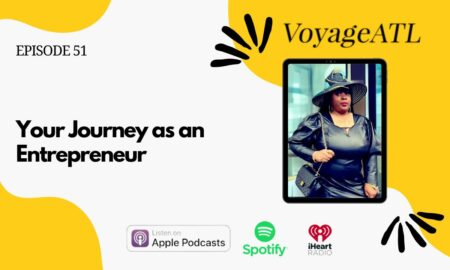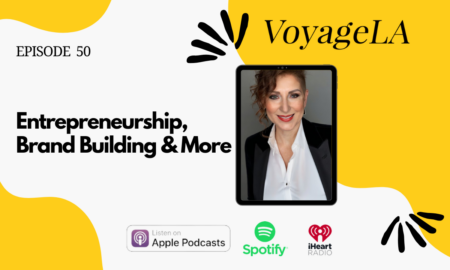

Today we’d like to introduce you to Vanessa Snyder.
Vanessa, can you briefly walk us through your story – how you started and how you got to where you are today.
My journey in the mental health field began as a second career. As a wife and mother of four, I quit my job in accounting and operations to pursuit my Masters in Marriage and Family Therapy at Richmont Graduate University here in Atlanta. From there, I spent a number of years working as a Licensed Marriage and Family Therapist, Licensed Professional Counselor, and Certified Christian Sex Therapist treating children, adults, couples and families. During this time, my clinical expertise became working with those who experienced sexual abuse, trauma and complex trauma as well as couples and families in crisis.
During my doctoral program in Counselor Education and Supervision, I joined a team of researchers working on best practices for treatment of victims of commercial sexual exploitation, both nationally and internationally. While working on multiple projects on trafficking program development, training, and evaluation, I went back to my alma mater as a full-time faculty member.
Starting as a student, then transitioning from professor to clinical dean to interim president, I was able to build relationships and trust that allowed my vision of the Richmont Institute of Trauma & Recovery to come to fruition. The trauma institute now operates as the foundation supporting our renown clinical training in trauma and addiction, the Richmont Trauma Center, offering specialized counseling services to those who have experienced single incident or complex trauma, as well as our acute crisis and disaster training that equips our trauma response teams and others to work nationally and internationally when natural or manmade disasters happen.
Currently, we partner with local non-profits to bring counseling services and trauma-informed education and training to underserved populations who could not traditionally afford it. We also partner with first responders and schools to offer trauma-informed training. Ultimately, our mission is to see healing, restoration, and transformation in the lives of individuals, families, churches and communities are experienced.
We’re always bombarded by how great it is to pursue your passion, etc – but we’ve spoken with enough people to know that it’s not always easy. Overall, would you say things have been easy for you?
Ha! I am an eight on the enneagram, which means by nature, nothing will be smooth! A woman in the field of clinical mental health is the norm, however they generally do not have a personality like mine.
According to Melissa Green (www.timothysgift.com).
“Enneagram Eights (The Challengers) are hard-driving, tough, decisive, innovative, and resourceful people who make things happen. They’re larger than life presence and boundless energy instills confidence in others, and people follow them. As long as they’re a man, that is.
Our culture reveres male Eights. People admire men who “kick ass and take names.” Sadly, we all know the word folks use to describe a woman who takes charge, stands up for what she believes, refuses to take crap from people and gets the job done. I don’t need to spell it out for you, right? All to say, female Eights are arguably the most misunderstood and unfairly treated number on the Enneagram.”
I have learned over the years that my personality is what has helped by success and also what has caused some of my most painful challenges. Because I am a therapist at heart, I am an advocate of doing my own personal work to make sure I am the best clinician, educator, leader, wife and mother I can be.
So, as you know, we’re impressed with Richmont Institute of Trauma & Recovery – tell our readers more, for example what you’re most proud of and what sets you apart from others.
My full-time roles include professor at Richmont Graduate University, the Vice President of the Richmont Institute of Trauma & Recovery, and the Director of the Richmont Trauma Center. As a professor, I teach clinical classes in mental health as well as family systems, addictions, and trauma. My role as VP includes program development, partnerships, and fundraising as well as consulting and training in areas of trauma-informed care, human trafficking, trauma-informed program evaluation, and organizational trauma. As the Director of the Richmont Trauma Center, I lead a team of expert clinicians in holistic trauma treatment and care for those clients we serve.
Along with these roles, I continue to work with complex trauma survivors diagnosed with Dissociative Identity Disorder as well as couples and families in crisis. I also spend time offering clinical supervision with interns and clinicians working towards licensure.
Overall, I am most proud of my Richmont team. Whether it is in the classroom, in the administrative board room, or in our clinical staff meetings, the community of peers I have the privilege to partner with on the mission to educate and lead “wounded healers” is a gift. What sets us apart is our desire to fill the gaps. We do certain things exceptionally well. Our desire is to partner with others with similar missions and help fill their gaps with our expertise. I am a firm believer that we should hold our gifts with open arms to allow healing to become as pervasive as trauma.
I am also honored to be a part of an organization that encourages and supports dreaming outside the box. My years working for the trauma institute has lead me into the fight against human trafficking in Moldova, Romania and across the United States, trauma-informed care into regions of Northern Nigeria, Southern Uganda, Trinidad/Tobago, refugee care in Greece, and humanitarian crisis care in Puerto Rico, South Texas, Charlottesville, Virginia and my local community.
There’s a wealth of academic research that suggests that lack of mentors and networking opportunities for women has materially affected the number of women in leadership roles. Smart organizations and industry leaders are working to change this, but in the meantime, do you have any advice for finding a mentor and building a network?
My best advice in finding a mentor is exhibiting authenticity. It is a freeing experience to allow yourself to be vulnerably authentic and connect with a mentor who sees the truest you. These are the relationships that foster the greatest growth as a leader. The experience of receiving honest, caring support with challenging truths allows us to become our wisest selves in all networking situations.
Pricing:
- Richmont Trauma Center Counseling: Rates range from $150 – $65
- Richmont Hope Counseling Centers: Rates range from $50 – $20
Contact Info:
- Address: 1900 The Exchange
Bldg. 100, Ste. 180
Atlanta, GA 30339 - Website: www.richmonttrauma.com; www.richmonttraumcenter.com
- Phone: 404-835-6113
- Email: vsnyder@richmont.edu
- Instagram: @richmont_trauma
- Facebook: @RGUinstoftrauma
- Twitter: @RGUinstoftrauma







Suggest a story: VoyageATL is built on recommendations from the community; it’s how we uncover hidden gems, so if you or someone you know deserves recognition please let us know here.



















